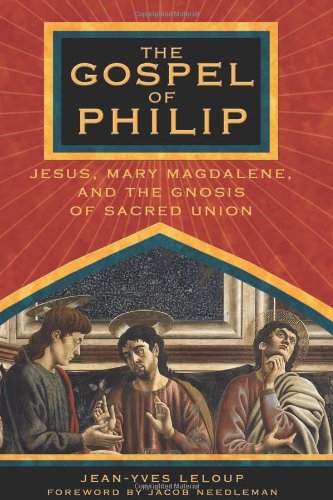

Most ebook files are in PDF format, so you can easily read them using various software such as Foxit Reader or directly on the Google Chrome browser.
Some ebook files are released by publishers in other formats such as .awz, .mobi, .epub, .fb2, etc. You may need to install specific software to read these formats on mobile/PC, such as Calibre.
Please read the tutorial at this link: https://ebookbell.com/faq
We offer FREE conversion to the popular formats you request; however, this may take some time. Therefore, right after payment, please email us, and we will try to provide the service as quickly as possible.
For some exceptional file formats or broken links (if any), please refrain from opening any disputes. Instead, email us first, and we will try to assist within a maximum of 6 hours.
EbookBell Team

0.0
0 reviews
• Emphasizes an initiatic marriage between the male and female principles as the heart of the Christian mystery
• Bears witness to the physical relationship shared by Jesus and Mary Magdalene
• Translated from the Coptic and analyzed by the author of the bestselling The Gospel of Mary Magdalene (over 90,000 sold
The mainstream position of the Christian church on sexuality was perhaps best summed up by Pope Innocent III (1160-1216) when he stated that “the sexual act is so shameful that it is intrinsically evil.” Another Christian theologian maintained that the “Holy Ghost is absent from the room shared by a wedded couple.” What Philip records in his gospel is that Christ said precisely the opposite: The nuptial chamber is in fact the holy of holies. For Philip the holy trinity includes the feminine presence. God is the Father, the Holy Ghost is the Mother, and Jesus is the Son. Neither man nor woman alone is created in the image of God. It is only in their relationship with one another--the sacred embrace in which they share the divine breath--that they resemble God.
The Gospel of Philip is best known for its portrayal of the physical relationship shared by Jesus and his most beloved disciple, Mary of Magdala. Because it ran counter to the direction of the Church, which condemned the “works of the flesh,” Philip’s gospel was suppressed and lost until rediscovered at Nag Hammadi in 1947. Orthodox theologian Jean-Yves Leloup’s translation from the Coptic and his analysis of this gospel are presented here for the first time in English. What emerges from this important source text is a restoration of the sacred initiatic union between the male and female principles that was once at the heart of Christianity’s sacred mystery.